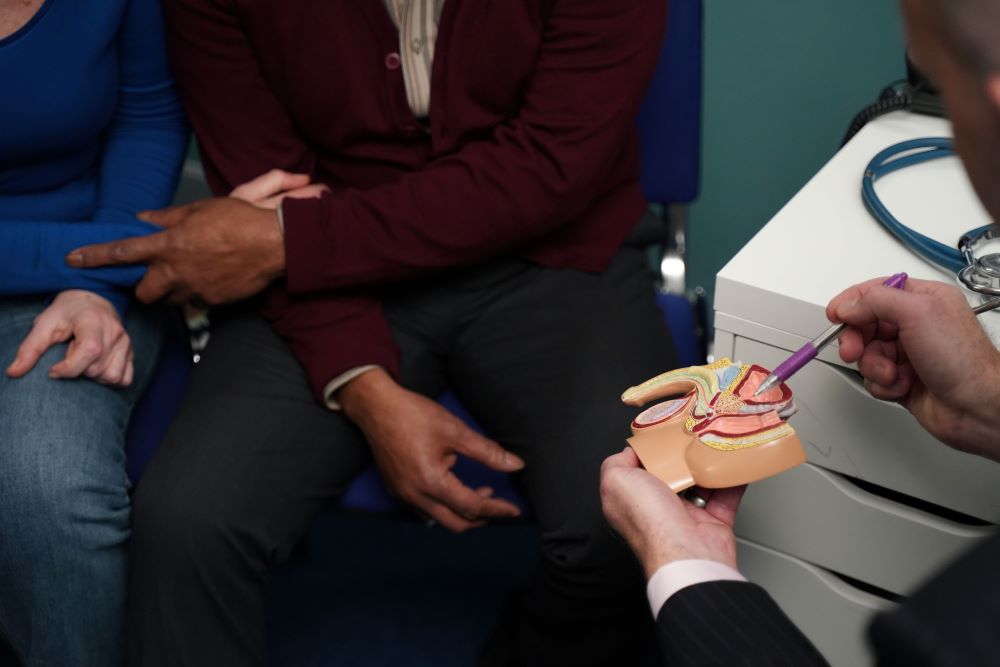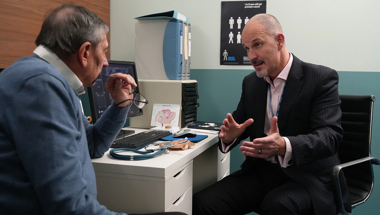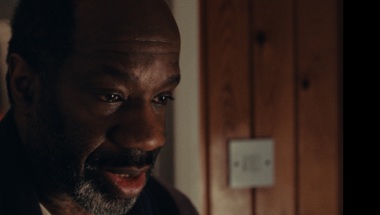Campaigns
09 Jan 2025‘The odds are stacked against you’: Black men more likely to be diagnosed at later stage, new evidence shows
The latest data shows Black men have higher rates of stage 3 and stage 4 prostate cancer diagnosis compared to white men. And Black men in their 60s who get a later diagnosis are also less likely to get NICE-approved treatment on the NHS. But a simple change to NHS guidelines could give thousands more Black men the chance of a life-saving earlier diagnosis.

Black men are being put in disproportionate danger of dying from prostate cancer due to significant health inequities and outdated NHS guidelines.
That's our analysis of shocking new data from the National Prostate Cancer Audit, which reveals that Black men have higher rates of stage 3 and stage 4 prostate cancer than any other ethnic group.
Not only that, but Black men in their 60s who get a later diagnosis are 14% less likely than white men of the same age to receive potentially life-saving treatments on the NHS. Treatments that are proven to be their best chance of a cure.
We know prostate cancer is curable if it’s caught early, but too many Black men are at risk of dying because they’re being diagnosed too late.
This new data confirms what Black men have been telling us for many years – but it doesn’t have to be this way.
We’re calling on the government to update NHS guidelines right now. This would mean GPs can proactively start conversations about prostate cancer with Black men from the age of 45, telling them about their higher risk and talking them through the pros and cons of a quick, simple and free PSA blood test.
This straightforward political solution could smash these inequities and give thousands more Black men the chance of a life-saving earlier diagnosis.
Current guidelines failing Black men
This fresh data proves the depth of the inequities Black men face when it comes to prostate cancer diagnosis and treatment.
We know 1 in 4 Black men will get prostate cancer – twice the rate for white men – and the audit data shows Black men are diagnosed with prostate cancer at all stages more often than white men.
Yet under current NHS guidelines, it’s each man’s responsibility to find out about his risk and decide whether to ask for a PSA blood test.
This fails to address inequity in our health system and is putting Black men's lives at risk – an urgent situation as almost 1,600 Black men are diagnosed with prostate cancer each year.
That’s why we’re asking the Secretary of State for Health and Social Care to overhaul these outdated guidelines straight away.
Doctors must be allowed to start conversations with Black men about their risk from 45 years old, and give them the option of a quick and easy PSA blood test to check for signs of prostate cancer.

‘The odds are currently stacked even higher against you’
Every man has the right to the best care and treatment for prostate cancer. And this new evidence highlights the urgent need for government action.
“We know that Black men are at a higher risk of getting prostate cancer but this new data from the National Prostate Cancer Audit shows that, if you’re Black, the odds are currently stacked even higher against you,” said Keith Morgan, our Associate Director of Black Health Equity.
“It’s encouraging that most Black men are being diagnosed in time for a cure, but far too many are still being diagnosed late – and Black men as a population have higher rates of late-stage diagnoses when compared to white men. Black men are also less likely to receive NICE-approved treatments that are proven to be the best options.
“Although we don’t yet have a complete picture of why this is happening, the evidence reveals the depths of inequity that exist when it comes to diagnosing prostate cancer and backs up what Black men have been telling us for years about the challenges they face. Now that we have the data there is a moral imperative to urgently address this health equity scandal.
“We can't change the fact that Black men are at highest risk of being diagnosed with prostate cancer, but we can change the fact that they're dying twice as much from a cancer that's treatable if caught early. That's why we’re redoubling our urgent call for the government to overhaul these outdated NHS guidelines and allow GPs to start conversations about the option of PSA testing with men at the highest risk of prostate cancer.
“The good news is that Black men don’t have to wait for guidelines to change. You have the right to a PSA blood test for free from your GP. If you’re Black or you have a family history of prostate cancer, check your risk using our free online Risk Checker or speak to your GP about a regular test from the age of 45.”
‘The disparity is shocking and deeply disappointing’
Professor Frank Chinegwundoh MBE, Consultant Urologist at Barts Health NHS Trust, said: “The disparity that we can see from this data is shocking and deeply disappointing. This is a consequence of current NHS guidelines; these guidelines treat all men the same, regardless of the fact that some individuals – Black men in this instance – have higher than average risk of prostate cancer.
“These guidelines need to be updated now. Diagnosing prostate cancer has never been safer, so guidelines should change to make it clear which men are most at risk of this disease, like Black men, and to allow their doctors to start talking to them about getting tested.
“Some men don’t come forward to their GPs because they think they’ll be invited as part of routine tests - when this simply isn’t true. The sooner the guidelines change, the sooner we can start saving more lives.”

Will you stand with us and call for change now?
Stand with us and tell the government it’s about time we changed the system to help more Black men get a life-saving earlier diagnosis.
Sign our letter to the Secretary of State for Health and Social Care, Wes Streeting MP, asking the government to change NHS guidelines right now.







